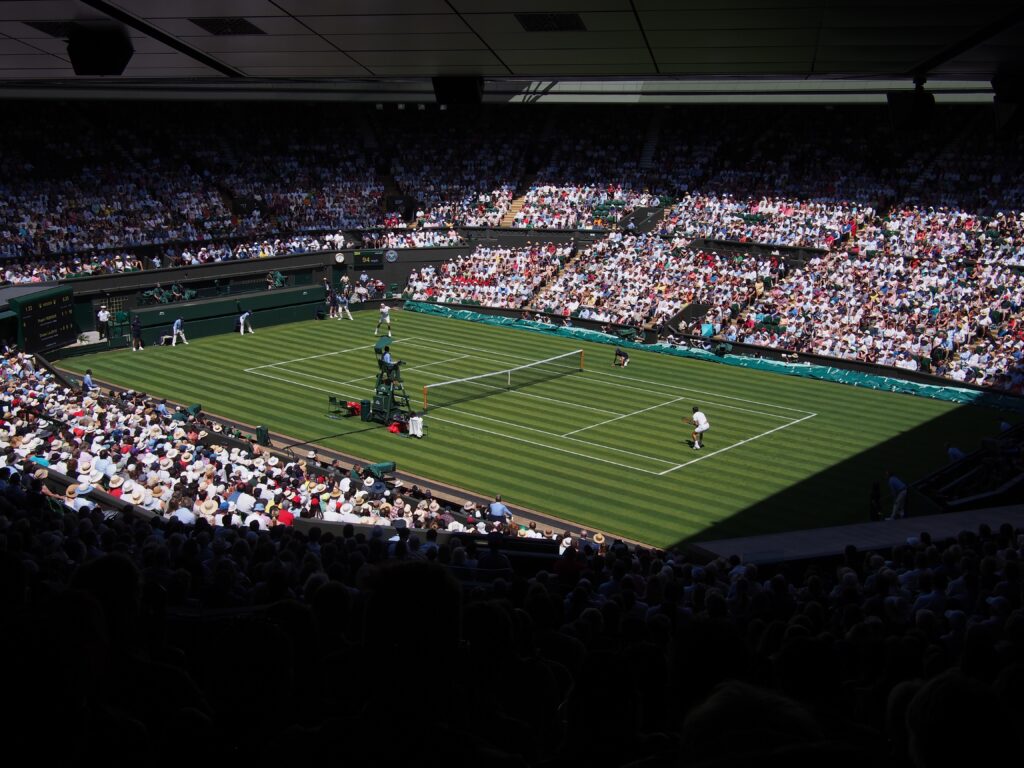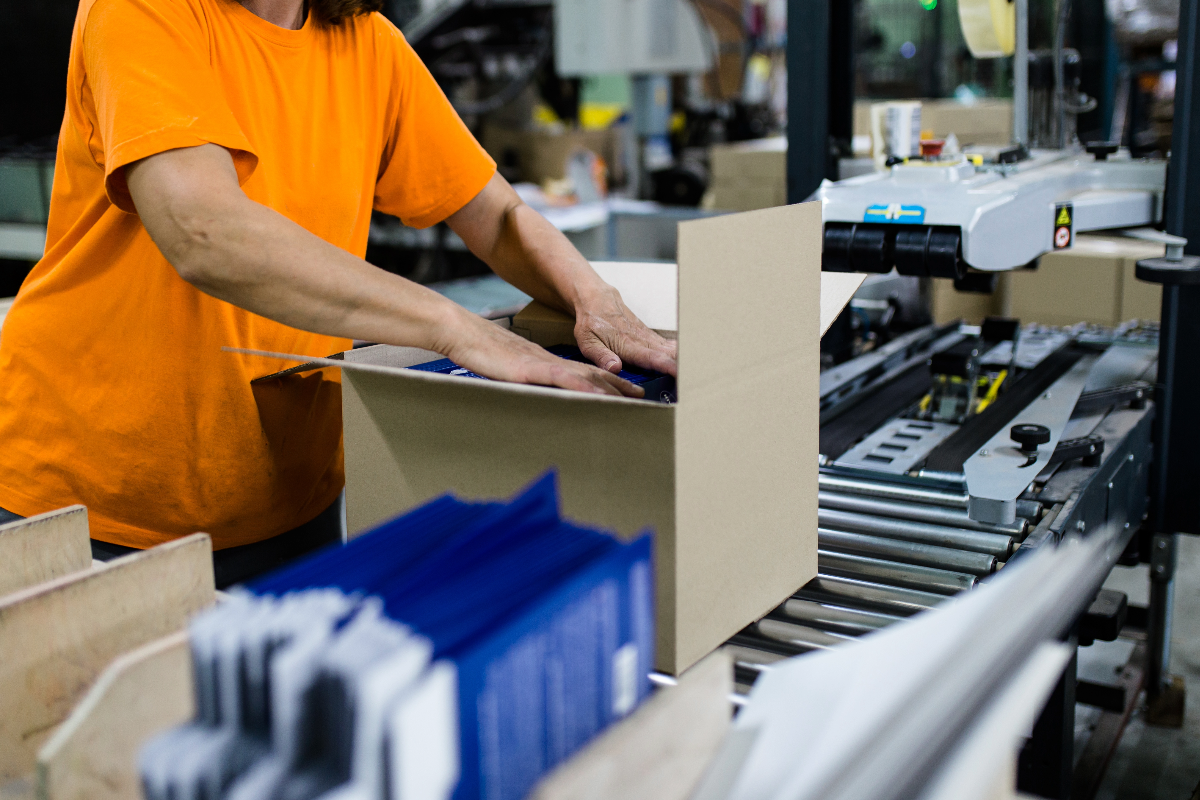BLOG
We look at Wimbledon’s sustainability promise and what hospitality venues can take from it.

Sustainable Wimbledon
With the attendance over the course of the Wimbledon Championships topping 500,000 people over the next fortnight, and queues for on-the-day tickets reaching up to 7,000, it’s not surprising that huge amounts of waste are generated across the two weeks of the competition.
Hospitality can generate a lot of waste, and with such a massive operation – including food, drinks, transport and grounds maintenance, it’s very important to be as sustainable as possible.
In the last few years, a number of changes have been made in an attempt to make the tournament and the venue more sustainable. The All England Lawn Tennis Club (AELTC), the body which organises Wimbledon, have announced an aim for net-zero by 2030 and a commitment to zero-waste in the same timescale.
But what kind of changes have been made to make Wimbledon more sustainable, and what can other hospitality venues take from this?
Plastics
Single use plastics are perhaps the biggest issue at many hospitality venues and events like concerts and sporting events. Reducing the amount of single-use plastic by introducing a reusable cup for cold drinks, for example those sold at venue bars, is an easy win for hospitality venues and one which has been implemented at Wimbledon in recent years. In 2021, over 500,000 fewer plastic cups were used due to introducing reusable cups.
Although there are increased numbers of water filling points to encourage visitors to bring their own refillable bottles, there are still over 250,000 single-use bottles of water sold during the two-week period. The AELTC is working with partners to try and encourage recycling. Evian, who provide the bottles of water, have introduced a recycling incentive scheme whereby those recycling their drinks bottles can be entered into a draw to win prizes to incentivise visitors to recycle.
If a venue must use plastic bottles, then a deposit return scheme or other recycling incentive is a great idea to make sure single-use plastic bottles are disposed of properly.
General waste
The AELTC say that no waste from the venue or the Championships goes to landfill – waste that can be separated is recycled and sent to be treated appropriately. Just from introducing separate bins for recycling and general waste, recycling rates have increased significantly across the site.
Any waste that cannot be reused or recycled is sent to energy-from-waste plants to be incinerated to create electricity.
Again this is a simple fix for hospitality venues. Ask your waste management provider to review your waste and recommend the number of general and recycling bins that are placed in the venue.
Catering
In 2022, more effort will be made to recycle catering disposables used at Wimbledon, such as trays and cutlery. Although the AELTC states that it will do this by introducing parchment liners to food trays, perhaps a more effective way of doing this would be to introduce compostable food trays that can be composted even if they have food waste on them – cardboard food trays can only be recycled if they are clean and not contaminated by food. This makes it much easier for hospitality venues to ensure that food containers are recycled as they can be composted along with food waste from vendors or kitchens.
AELTC states that hot drinks cups are all fully recycled, but in 2022 a new reusable hot drink cup is being introduced to further reduce the amount of waste produced. Again, this is an easy win for hospitality venues. Reusable cups that are either returned for a deposit, or branded cups that people can take away with them as a momento, even taking them to other events or bringing back with them the following year, are a great way of reducing waste and being more sustainable – and will help get your brand out there!
Food waste
Did you know that over 30,000 kg strawberries are served annually at Wimbledon? They are grown locally, but all those strawberries will of course create food waste. Not to mention waste from other Wimbledon staples such as tea bags and picnic lunch leftovers.
Food waste at Wimbledon is collected and taken to anaerobic digestion plants which generate fertiliser. This is a great way to process food waste and, again, if compostable takeaway containers are used it can be composted too.
Not only is composting more environmentally friendly, it keeps food waste out of the general waste collections. If food is added to general collections, they can become heavy and more expensive to collect.
If you have food waste at your hospitality venue, speak to you waste management provider about separate food waste bins.
Speciality recycling
Not all venues will have special items to recycle – but don’t discount any items which appear to be difficult to reuse or recycle.
In the case of Wimbledon – how about tennis balls and racket strings?
This year, racket strings have been recycled to create table tops for the ticket desks – a great idea to reuse something that would otherwise be tricky to recycle.
It’s great that businesses and organisations are starting to be more innovative in what they recycle – at Flame UK we have worked with a number of clients to find innovative recycling ideas for their different waste streams – just ask us for further information.
Partners and suppliers
As a hospitality venue, you will of course have suppliers and partners. It is important to work with them to make sure they share your sustainability aims and vision. You could check the sustainability of your suppliers before you start working with them, and if needed, ask them to include more sustainable practices into their work with you. For example, requesting that food vendors do not use single-use plastics or specify that they should use compostable food containers.
As mentioned in the “plastics” section – Wimbledon are working with suppliers to be more sustainable; and as such one of their suppliers had created a recycling reward initiative. Any construction partners they work with also ensure that they send as much for reuse and recycling as possible – with over 95% of construction waste at Wimbledon being diverted from landfill.
Transport
Transport is perhaps not something associated with Wimbledon, but with a large venue and over 100 players and officials, it’s definitely something that needs to be considered. At Wimbledon, the switch to electric buggies and on-site vehicles has begun, with more promised in the coming years. Transport such as coaches which take officials and players to and from their hotels each day is also increasingly electric.
If your business or venue uses vehicles, cars or buggies, consider switching to electric. We can help you source and install charging points for your vehicles.
Energy
Of course one of the most simple ways to reduce your carbon footprint is to switch to a green energy tariff and buy electricity from renewable sources. This has begun to happen at Wimbledon, along with identifying areas that energy use can be reduced and making changes accordingly – such as changing all lighting to LED lamps; and installing solar panels.
Consider if you can switch to a green tariff and where you could save energy within your venue. Contact Flame Energy if you need any advice or support doing this for your venue.
Green waste
Garden waste generated at Wimbledon is composted and used for mulch within the grounds. Electric lawnmowers and horticultural equipment are used across the grounds, reducing the need for reliance on fossil fuels.
Of course not all hospitality venues will generate green waste, but it is worth considering how to handle it and if you can reuse any garden waste for compost or mulch, before it is disposed of in your green waste collection.
For more information on Wimbledon’s sustainability, see www.wimbledon.com/en_GB/atoz/sustainability . for help with managing your hospitality waste and becoming more sustainable, contact Flame UK today.




